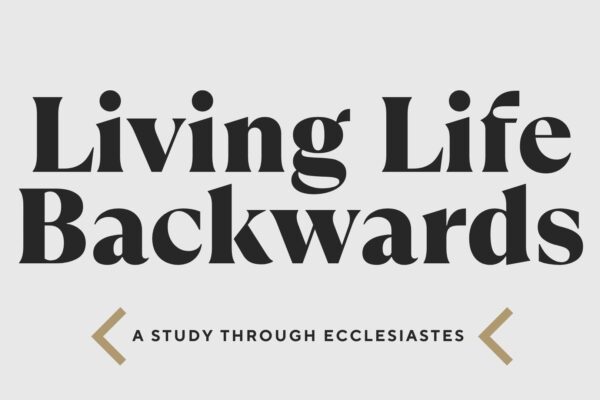Introduction
When faced with a significant life question, where do you turn for wisdom? In the past, people often sought guidance from their pastors and the Bible. Today, many turn to therapists, Google, or even AI chatbots like ChatGPT. While these resources can be helpful, the Bible reminds us that they shouldn’t be our first stop.
The Foundation of Wisdom: Fear of the Lord
In the Book of Proverbs, King Solomon states, “Fear of the Lord is the beginning of wisdom, and knowledge of the Holy One results in good judgment.” By putting God first in our search for wisdom, we align ourselves with a foundation that promises to multiply our days and add years to our lives. This principle is echoed throughout the Bible, presenting a clear choice between wisdom and foolishness.
Living Life Backwards: Wisdom from Ecclesiastes
We’ve been in a sermon series on the Book of Ecclesiastes exploring the concept of “living life backwards.” This approach encourages us to envision the end of our lives and the legacy we want to leave behind, then live each day with that perspective in mind. This practice grants us wisdom by prioritizing long-term significance over short-term pleasures.
The Paradox of Mourning and Celebration
Ecclesiastes 7 presents a challenging idea: “A good name is better than precious ointment, and the day of death better than the day of birth.” Solomon argues that funerals offer profound lessons about life, while parties provide only fleeting enjoyment. This perspective shifts our focus from temporary happiness to lasting wisdom and character.
The Importance of Legacy
Solomon emphasizes the value of a good name, representing integrity and character, over wealth and material possessions. This sentiment is reflected in contemporary stories, such as those depicted in the TV show “The Morning Show,” where characters possess wealth and fame but lack moral integrity.
Learning from Funerals
Funerals confront us with the reality of our mortality, prompting introspection and openness to God. They force us to evaluate our lives, priorities, and relationships, offering a unique opportunity to gain wisdom that everyday life often obscures.
Reflecting on Mortality: One Month to Live
Consider how your life would change if you knew you had only 30 days to live. Such a perspective can dramatically shift priorities, encouraging us to mend relationships, seek forgiveness, and express love and gratitude. This exercise reveals the deep-seated understanding that relationships are the most valuable aspect of our lives.
Wisdom from Ecclesiastes: Embracing Fleeting Life
The recurring theme in Ecclesiastes is the fleeting nature of life. Recognizing life as a vapor, here one moment and gone the next, urges us to prioritize what truly matters. Solomon’s wisdom encourages us to live with the end in mind, valuing relationships above all else.
Conclusion: Putting Wisdom into Practice
As you reflect on your life, consider what changes you would make if you had only 30 days to live. What relationships need mending? What priorities need realignment? Take action now, as we never know how much time we or our loved ones have. Let’s pray for the wisdom to number our days and live with the end in mind. May we put God first, seek His guidance, and prioritize our relationships, knowing they hold eternal significance. Amen.


